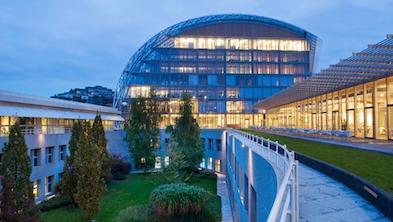The European Investment Bank (EIB) announced it is supporting the research and development of Germany’s fourth-largest automotive supplier Mahle with a loan of €300 million to “accelerate vehicle electrification and the decarbonisation of road traffic.”
The EIB said Mahle’s projects include investments in eco-friendly technologies such as electric motor and battery components, thermal management, cooling and air quality systems, hydrogen and fuel cell components as well as power electronics and traction motors.
“Mahle is working on the climate-neutral mobility of tomorrow with a focus on the strategic fields of electromobility and thermal management as well as other technology areas for reducing CO2 emissions, for example fuel cells and highly efficient combustion engines that run on e-fuels or hydrogen,” said the EIB.
“The group already generates over 60% of its sales independently of passenger car internal combustion engines.
“By 2030, this share is set to increase to 75%.”
According to its lending criteria, the EIB said it is able to finance a meaningful amount of Mahle’s research and development projects as the company’s investments in sustainable technologies “aim to significantly reduce the carbon footprint of mobility.”
EIB Vice-President Ambroise Fayolle said: “We are proud to support Mahle’s research and development in innovative technologies for zero-emissions vehicles.
“With this investment, together we will contribute to a more efficient and sustainable European transport system.
“The project is aligned with the EIB’s Climate Bank Roadmap in support of international climate goals.
“This is a truly European project, with research being carried out in Germany and seven other EU countries.”
Michael Frick, Mahle’s chairman of the management board (ad interim) and chief financial officer, said: “Through investments in zero-emissions technologies, we are accelerating the transition to a reduced carbon footprint, helping to make individual mobility more efficient, more sustainable, and therefore more environmentally compatible.”
